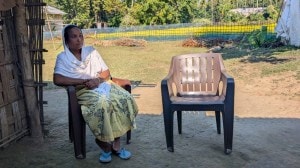The cellphone: Is that a different ring?
What if,globally speaking,the iPad is not the next big thing? What if the next big thing is small,cheap and not American?
What if,globally speaking,the iPad is not the next big thing? What if the next big thing is small,cheap and not American?
America went into a frenzy last weekend with the iPads release. But even as hundreds of thousands here unwrap their iPads,another future entirely may be unfolding overseas on the cellphone.
Forgotten in the American tumult is a global flowering of innovation on the simple cellphone. From Brazil to India to South Korea and even Afghanistan,people are seeking work via text message; borrowing,lending,and receiving salaries on cellphones; employing their phones as flashlights,televisions and radios.
And many do all this for peanuts. In India,Reliance Communications sells handsets for less than 25,with one-cent-a-minute phone calls across India and one-cent text messages and no monthly chargewhile earning fat profits. Compare that to iPad buyers in the United States,who pay 499 for the basic version,who might also have a 1,000-plus computer and a 100-plus smart cellphone,and who could pay 100 or more each month to connect these many devices to the ether.
Not for the first time,America and much of the world are moving in different ways. Americas innovators,building for an ever-expanding bandwidth network,are spiralling toward fancier,costlier,more network-hungry and status-giving devices; meanwhile,their counterparts in developing nations are innovating to find ever more uses for cheap,basic cellphones.
America does not share the worlds romance with the cellphone. Since returning last year from India,I have been struck by how often calls drop here in the US and surprised that text-messaging,so vital to Indians,has yet to entrench itself in America,where so much messaging travels on the Internet.
A recent report by the World Economic Forum and Insead,the French business school,concluded that Americans rank below 71 other nations in their level of cellphone penetration,even though they lead in other areas of connectivity. Some Americans are not connected at all and the phone is not be-all-end-all.
But it is for people from Kenya to Colombia to South Africathe kind of places that have built cellphone towers precisely to leapfrog past the expense of building wired networks,which have linked Americans for a century. In such places,cellphones are becoming the truly universal technology.
And because it reaches so many people,because it is always with you,because it is cheap and sharable and easily repaired,the cellphone has opened a new frontier of global innovation.
Babajob,in Bangalore,India,and Souktel,in the Palestinian territories,offer job-hunting services via text message. Souktel allows users without Internet or fancy phones to register by texting information about themselves. A user who then texts in match me will receive a listing of jobs suitable to her,including phone numbers to dial.
In Africa,the cellphone is giving birth to a new paradigm in money. Plastic cards have become the reigning instruments of payment in the West,but projects like PesaPal and M-Pesa in Kenya are working to make the cellphone the hub of personal finance. M-Pesa lets you convert cash into cellphone money at your local grocer,and this money can instantly be wired to anyone with a phone.
These efforts arise from a shortage of bank accounts in Africa. But they create the possibility of peer-to-peer finance that could be useful even in wealthy countriesfor example,allowing small businesses in rural areas to collect money without credit-card systems.
I called Western Union,the Colorado-based money-transfer service,to ask if I could send money to a mobile phone. Basically,we do not have that kind of option right now, the agent told me.
The phone has also moved to the centre of community life in many places. In Africa,urban churches record sermons with cellphones,then transmit them to villages to be replayed. In Iran and Moldova,phones helped to organise popular uprisings against authoritarian governments. In India,the cellphone is used in citizen election monitoring,and in equipping voters,via text message,with information on candidates incomes and criminal backgrounds.
Recognising the role of cellphones in developing nations,the White House last year made a point of releasing President Obamas speech to the Muslim world,in Cairo,in 13 languages over text message. It has made no similarly publicised gesture in the United States,even though not everyone has Internet access.
All of which suggests the presence of an innovation gap between the worlds richest societies and the poorestnot in device design so much as in usage. And there is a question about whether the United States,which gained so much from the Internet revolution,will similarly profit from the entry of billions more people from the developing world into a massive worldwide middle classconsumers now but not yet rich,with a simple cellphone and a less-is-more sensibility.
- 01
- 02
- 03
- 04
- 05






























